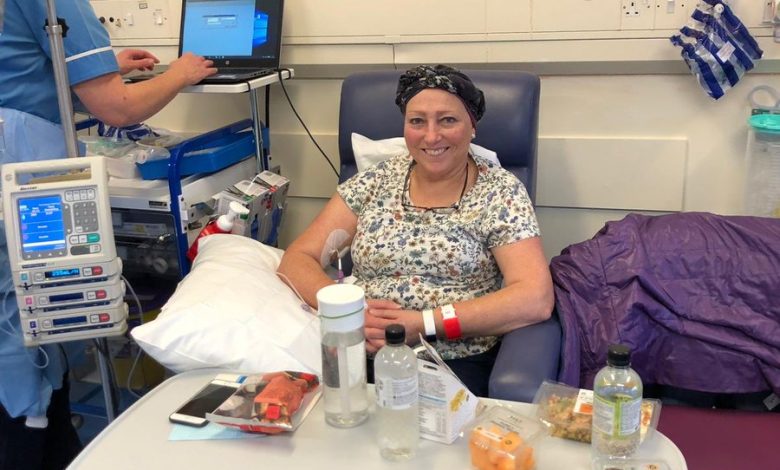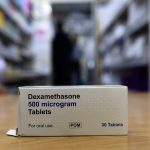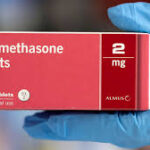Why Is Dexamethasone Given Prior To Chemo?

Chemotherapy is the use of drugs to destroy cancer cells. This type of cancer treatment works by keeping cancer cells from growing, dividing, and making more cells. Chemotherapy is a systemic medication. This means it travels through the bloodstream and reaches all parts of the body.
Chemotherapy can be used as a treatment for many different cancers. Your doctor may refer to chemotherapy as standard chemotherapy, traditional chemotherapy, or cytotoxic chemotherapy.
There are many different kinds of chemotherapy. In general, drugs used for chemotherapy are powerful chemicals that treat cancer by attacking cells during specific parts of the cell cycle. All cells go through the cell cycle, which is how new cells are made. Cancer cells go through this process faster than normal cells, so chemotherapy has more of an effect on these fast-growing cells.
What is Dexamethasone?
Dexamethasone is a synthetic glucocorticoid used in the treatment of inflammatory and immune conditions in children and adults. It is available in forms that can be taken by mouth, through a patch placed on the skin, as a cream, in eye drops, and as an injectable. Take the tablet form of the medication with a full glass of water (8 oz). To prevent stomach upset, it can be taken with food.
Dexamethasone is typically used for treating chronic conditions, but it can be a short-term treatment for acne. Because it suppresses the immune system, dexamethasone isn’t usually prescribed when a person is at risk of developing an infection. However, it is sometimes used, with caution, to manage the effects of severe inflammatory reactions caused by infections.
Dexamethasone is approved for treating acute and chronic illnesses as well as certain medical emergencies.
Common conditions treated with dexamethasone include:
• Inflammatory conditions, including osteoarthritis, rheumatoid arthritis, ankylosing spondylitis, bursitis, systemic lupus erythematosus (SLE), and rheumatic carditis
• Skin conditions like severe psoriasis, pemphigus, Stevens¬ Johnson syndrome, and atopic dermatitis
• Respiratory inflammation in laryngeal edema (swelling of the throat), childhood croup, and bronchial asthma
• Inflammation of the eye associated with uveitis, choroiditis, and optic neuritis
• Neurological diseases like multiple sclerosis and temporal arteritis
• Gastrointestinal diseases like ulcerative colitis
• Systemic conditions including autoimmune hemolytic anemia and nephrotic syndrome
• Severe infections related to pulmonary tuber¬culosis
• Cerebral edema (swelling of the brain) due to cancer, trauma, a severe stroke, or brain surgery
• Replacement of glucocorticoids in acute and chronic adrenal insufficiency such as Addison’s disease
• Adjunctive treatment with chemotherapy for cancer, including leukemia and multiple myeloma
• Pre-operative treatment before certain procedures
Typically, dexamethasone is used as a supplement to other treatments. The conditions that this medication is used to treat are very different from one another and are generally treated with other medications or procedures in addition to dexamethasone.
Why is dexamethasone given prior to chemo?
Dexamethasone comes as a tablet and a solution (Tablet: 0.5 mg, 0.75 mg, 1 mg, 1.5 mg, 2 mg, 4 mg, 6 mg, 20 mg. Solution: 0.5 mg/mL, 1 mg/mL). Prior to chemotherapy, dexamethasone is usually administered intravenously or orally to help in the control of acute nausea and vomiting which are the most common and distressing acute side effects of cancer treatment. It occurs in up to 80% of patients and can have a significant impact on a patient’s quality of life.
Most doctors also give dexamethasone oral tablets to patients to take for the two days after chemotherapy to help reduce delayed nausea and vomiting associated with the therapy.
Dexamethasone dosage for cancer
When doctors use dexamethasone off-label in the management of cancer-related cachexia, a dose of 3 to 4 mg once daily is usually recommended. According to a double-blind, randomized, placebo-controlled trial published in the Journal of Clinical Oncology, a 4 mg twice-daily dose of dexamethasone is effective in treating cancer-related fatigue for a period of two weeks.
Your doctor will prescribe a dosing schedule that is best for you. Follow the directions on your prescription label carefully, and ask your doctor or pharmacist to explain any part you do not understand. Take dexamethasone exactly as directed. Do not take more or less of it or take it more often than prescribed by your doctor.
Do not stop taking dexamethasone without talking to your doctor. Stopping the drug abruptly can cause loss of appetite, upset stomach, vomiting, drowsiness, confusion, headache, fever, joint and muscle pain, peeling skin, and weight loss. If you take large doses for a long time, your doctor probably will decrease your dose gradually to allow your body to adjust before stopping the drug completely. Watch for these side effects if you are gradually decreasing your dose and after you stop taking the tablets or oral liquid, even if you switch to an inhalation corticosteroid medication. If these problems occur, call your doctor immediately. You may need to increase your dose of tablets or liquid temporarily or start taking them again.
Dexamethasone side effects
The common side effects of dexamethasone include:
• anxiety
• dizziness
• headache
• high blood glucose
• high blood pressure
• low potassium levels (causing symptoms such as tiredness)
• mood changes, such as depression, shifts in mood, or personality changes
• nausea
• stomach upset
• swelling (edema)
• trouble falling asleep
• vomiting
If these effects are mild, they may go away within a few days or a couple of weeks. If they’re more severe or don’t go away, talk with your doctor or pharmacist.
Serious side effects
Call your doctor right away if you have serious side effects. Call 911 if your symptoms feel life-threatening or if you think you’re having a medical emergency. Serious side effects and their symptoms can include the following:
• Unusual tiredness
• Unusual dizziness
• Unusual digestive upset. Symptoms can include:
o abdominal pain
o nausea or vomiting
• Blood in your stool, or black stools
• Blood in your urine
• Unusual bleeding or bruising
• Unusual swelling throughout your body, or bloating in your abdomen (stomach area)
• Infection. Symptoms can include:
o fever
o muscle aches
o joint pain
• Changes in mood or thoughts, or mood disorders such as depression. Symptoms can include:
o severe mood shifts
o euphoria (a feeling of intense happiness)
o trouble sleeping
o personality changes
• Severe allergic reaction. Symptoms can include:
o fever
o trouble breathing
• Adrenal insufficiency. Symptoms can include:
o tiredness
o nausea
o darkened skin color
o dizziness when standing
• More frequent infections (can occur with long-term use)
• Stomach ulcers. Symptoms can include:
o pain in the abdomen (stomach area)
• Congestive heart failure. Symptoms can include:
o shortness of breath
o tiredness
o swollen legs
o rapid heartbeat
• Osteoporosis (thinning of the bones)





